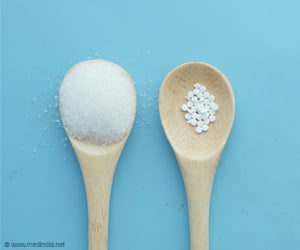Explore the nutritious profile of the Mediterranean diet supplements that enhance the success rate of IVF or in vitro fertilization.
- Mediterranean diet supplements consumed before and during IVF or in vitro fertilization treatment can increase the procedure's success rate
- Ingredients of the Mediterranean diet such as dehydroepiandrosterone, co-enzyme Q10, and omega-3 fatty acids enhance the IVF success rate
- These components promote ovary stimulation, and improve the quality of the egg and embryo, subsequently enabling successful IVF
Nutritional supplements and IVF: an evidence-based approach
Go to source).
IVF Treatment and Adjuvant Therapies
In vitro fertilization, or IVF, is a reproductive method that helps infertile individuals or couples to have a child.Adjuvant supplements are now a standard component before and during the treatment cycle to help infertile women conceive by IVF, especially those whose previous treatments have failed.
Nutritional supplements are typically purchased over the counter or online rather than through a prescription. IVF discussion boards indicate that they're popular, self-medicated, and of enormous public interest.
The Nutritious Nuggets of Mediterranean Diet
Mediterranean diet typically includes fruits and vegetables, whole grains, legumes, nuts, fish, and monounsaturated or polyunsaturated oils, with a limited intake of highly processed foods.These diets are rich in B vitamins, antioxidants, omega-3 poly-unsaturated fatty acids, and fiber and are low in saturated fat, sugar, and sodium.
This nutritious Mediterranean diet controls blood pressure, cholesterol, and sugar levels, reducing the risk of metabolic and cardiovascular disorders, and preserving overall health.
How Mediterranean Diet Supplements Promote IVF Success
The study examined various nutritional supplements of the Mediterranean diet, including dehydroepiandrosterone (DHEA), melatonin, carnitine, selenium, vitamin D, myo-inositol, and omega-3.The ingredients of Mediterranean diet supplements support reproductive therapies in the following ways –
- Dehydroepiandrosterone (DHEA), and co-enzyme Q10 (CoQ1O) can treat poor ovarian response to ovarian stimulation if started before cycle commencement
- CoQ1O may have some merit in older women with a poor response to ovarian stimulation or for poor embryonic development
- Myo-inositol can benefit women with polycystic ovarian syndrome (PCOS) by increasing egg quality
- Omega-3 fatty acids may be beneficial in improving IVF clinical outcomes, and embryo quality, in addition to general health benefits
The Mediterranean diet supplements as a whole have demonstrated benefits in both embryo development and pregnancy outcomes (even from a six-week intervention program).
In summary, scientists suggest that adopting Mediterranean diet supplements can be a straightforward nutritional strategy to support in vitro fertilization.
Additionally, all women attempting to conceive should take adequate folate supplementation and seek the advice of a general practitioner or specialist to ensure they are in their best general health for conception.
Disclaimer: The content on this page is meant to be an informative resource and is not meant to replace advice from a medical professional. It is always best to consult a healthcare provider with any concerns
Reference:
- Nutritional supplements and IVF: an evidence-based approach - (https://www.rbmojournal.com/article/S1472-6483(23)00869-6/fulltext)
Source-Medindia
















